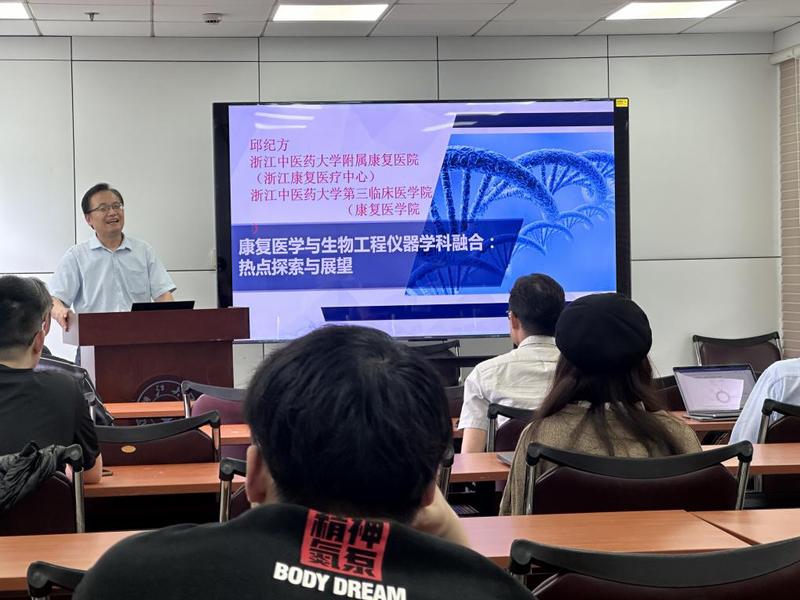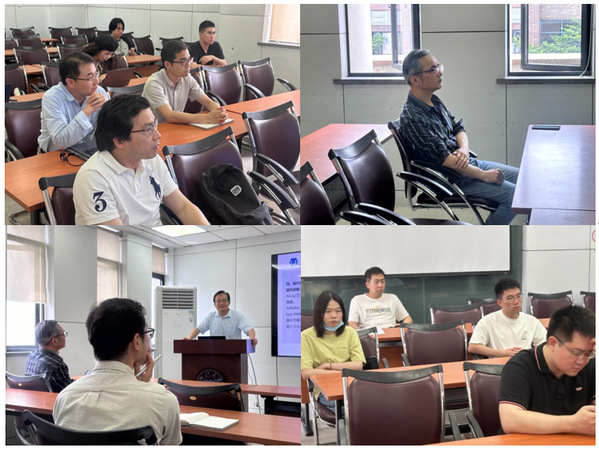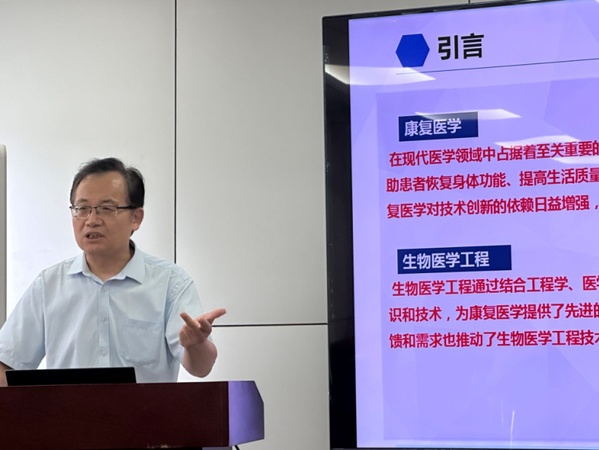On June 7, 2024, the 12th Medicine-engineering Salon and the 198th Youth Academic Salon of CBEIS were held in the Zhouyiqing Suite of Yuquan Campus, Zhejiang University. Prof. Qiu Jifang, Chief Physician from Zhejiang Rehabilitation Medical Centre, gave a lecture on Exploring the Intersection of Rehabilitation Medicine and Biomedical Engineering Instrumentation.

Professor Qiu is the Chief Physician at Zhejiang Rehabilitation Medical Center. He holds a Master of Medicine and serves as an Adjunct Professor, Master's Degree Supervisor, and Deputy Director of the Rehabilitation Medicine Institute. He has devoted 39 years to clinical, teaching, and scientific research in rehabilitation medicine, specializing in the fields of paraplegia, hemiplegia, craniocerebral trauma, and Parkinson's disease. Qiu is presently a member of the Chinese Association of Rehabilitation Medicine, the Vice Chairman of the Rehabilitation Medicine Committee of the China Medical Informatics Association, and also the Vice Chairman of the Rehabilitation Medicine Committee of Zhejiang Social Medical-group Association. He has authored more than 40 articles in the American Journal of Physical Medicine and Rehabilitation, Journal of Rehabilitation Medicine, and a series of Chinese Journals, while co-authoring 19 monographs. Moreover, he has been involved in numerous national projects.

The report examines recent developments in rehabilitation medicine, focusing on engineering. It provides detailed insight into rehabilitation technology and equipment, biomaterials & tissue engineering, physiological monitoring, Kinect-based rehabilitation evaluation & data processing analysis, and 3D printing & materials. In terms of its technologies and devices, Prof. Qiu presents practical applications of wearable rehabilitation devices and emphasizes the crucial role of VR technology in rehabilitation. He also elaborated on the advantageous features of exoskeleton robots, wheelchair-related technologies, and intelligent prosthetics, as well as the application of brain-computer interfaces.
Professor Qiu shared the research that his team has been conducting for the past five years, which includes the application of the Ambulosono in treating Parkinson's Disease. He also introduced the current hot topics that have been the focus of the academic conferences recently. The studies and discussions showcased the latest advancements in rehabilitation engineering and provided valuable references for future directions.

During the Q&A session, the students and faculty members engaged in heated discussions with Prof. Qiu regarding the discoveries and current status of research that could improve patient outcomes during the rehabilitation process for Parkinson's disease. They also explored several possible research directions for future technologies and devices used in assessing Parkinson's disease.
This event showcased the latest research results in rehabilitation medicine and also offered new ideas and directions for future research. Science seeks specialization, and its field has no limit. The ongoing advancements in rehabilitation engineering technology will bring hope to more patients and drive the development of rehabilitation medicine to new heights.